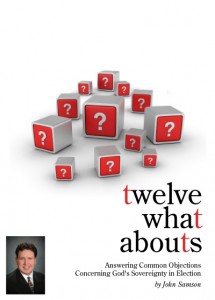 Joe Rigney is Assistant Professor of Theology and Christian Worldview at Bethlehem College and Seminary where he teaches undergraduates in the Christian Worldview Program and courses on Jonathan Edwards. Here is a lecture of his which provides an introduction to the life, theology, writings and legacy of Jonathan Edwards.
Joe Rigney is Assistant Professor of Theology and Christian Worldview at Bethlehem College and Seminary where he teaches undergraduates in the Christian Worldview Program and courses on Jonathan Edwards. Here is a lecture of his which provides an introduction to the life, theology, writings and legacy of Jonathan Edwards.
Lecture time-markers —
04:14 — 1. Edwards on the Trinity
14:06 — 2. Edwards on Creation
18:27 — 3. Edwards on God’s End in Creation
32:06 — Conclusion
Q&A time-markers —
34:04 — Edwards on typology
37:56 — First recommended Edwards books to read
39:55 — Edwards on God’s direct creation and the place of causality
43:00 — Edwards and the classical tradition (Aristotle, Augustine, etc)
45:27 — Dante, Locke, and Edwards’s influences
47:02 — Edwards on spiders
49:14 — Edwards’s faults and weaknesses
51:36 — The Great Awakening and how Edwards processed it
56:46 — The Enlightenment and its influence on Edwards
59:40 — Edwards’s legacy

 An old heresy, suggests that men can become gods. This is the doctrine espoused by the LDS (Mormons) and other cult groups. I will let an excerpt from Dr. James White’s book “Is the Mormon my Brother?” show the context and true meaning of the text.
An old heresy, suggests that men can become gods. This is the doctrine espoused by the LDS (Mormons) and other cult groups. I will let an excerpt from Dr. James White’s book “Is the Mormon my Brother?” show the context and true meaning of the text. As my new book is now published and being read, it has been very gratifying to receive feedback from people telling me how helpful the material has been. Obviously an author writes for the purpose of being read and my prayer is that if God so wills, the book will be a useful tool in the Master’s hands to allow many of His precious saints to gain more of an understanding of the depth, riches and power of God’s measureless grace in Christ.
As my new book is now published and being read, it has been very gratifying to receive feedback from people telling me how helpful the material has been. Obviously an author writes for the purpose of being read and my prayer is that if God so wills, the book will be a useful tool in the Master’s hands to allow many of His precious saints to gain more of an understanding of the depth, riches and power of God’s measureless grace in Christ.